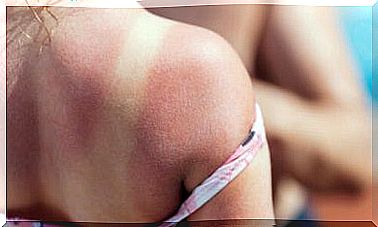5 Signs Of Teenage Rebellion And How To Respond To It

Most parents experience their child’s entry into adolescence and puberty in a very abrupt way, although we obviously know that our children are getting older. When our children show the first signs of teenage rebellion, we are often confused by them, or we miss them altogether.
These signs are not always direct challenges of our authority. Rather, they may begin to appear as a result of emotional changes. Other influencing factors include a search for independence and typical psychological and physical changes in general.
It is worth noting that the arrival of puberty does not look the same for everyone. For some children, it can start as early as 8 or 9 years of age. For others, it comes later – perhaps even after the age of 13. Puberty is the beginning of a number of transformations: physical, hormonal and psychological. The stage lasts at least until the age of 19.
In this article, we will describe 5 signs of teenage rebellion. The information can help you identify if your child has entered puberty. We also give you tips on how to respond and react.
5 signs of teenage rebellion
As I said, the signs of teenage rebellion are not always visible in the form of clear rebellious behavior. Rather, the characters can come more discreetly as part of a process that leads to autonomy and the formation of an adult personality.
Here are some signs of teenage rebellion you can look out for:
1. Your child wants to be alone
This is one of the more typical signs of rebellion among young people and comes from a need for privacy and privacy. It becomes especially important during puberty.
Many parents take this behavior as a sign of some problem in their child’s life. Of course, it is never a bad idea to make sure that everything is okay and that your child does not suffer from any type of depression. But in all probability, the best thing you can do is give your child the space he or she needs.
Of course, you should make sure that you maintain a balance. If your child’s time alone takes him away from friends or affects his grades or eating habits, there may be cause for concern. In this case, the behavior may indicate that your child demands a little more of your commitment.

2. Sudden mood swings
This is also another very common sign of teenage rebellion. Mood swings are the result of hormonal changes that make young people more emotionally sensitive and unstable.
At the same time, your teenager may react indifferently to your emotional expressions and declarations of love. Or she may react angrily and hurtly to an innocent joke. Adolescents can also be very upset about seemingly insignificant problems like a small pimple.
It is important to handle these situations in a way that develops the child’s attitudes. However, this does not mean that we should be tolerant of them breaking the rules. We must maintain our authoritative role in the home.
Less communication
Many children remain very closely attached to their parents until the onset of puberty. All of a sudden, parents may wonder why their children no longer tell them about everything and everyone and constantly want to be with them. At the same time, they can develop new friendships that we do not know about.
The fact that our teenage children become less interested in talking to us is completely normal, as is the formation of new friendships. Many parents may feel a little jealous or a sense of abandonment in the face of this change. However, it is a healthy part of a child’s emotional development that enables the child to create his or her own identity.

Of course, adolescents are more susceptible to various social problems. These include, but are not limited to, substance abuse, crime, and unplanned pregnancies. If you suspect something, you need to get involved to avoid negative influences for your child.
4. The presence of the parents embarrasses them
This is perhaps what affects us most as parents, and what we understand least. During puberty, young people are in the middle of a search for independence and their identity as adults. This means that you leave childish behaviors and the close connection to your parents behind.
Our teenage children then often show a kind of dismissive attitude towards our presence when they are with their friends.
This does not mean that our children have stopped caring about us. It is rather a reflection of a kind of uncertainty. It makes them feel more uncomfortable around us because they can not show their new relative maturity.
5. They say “no”
This sign is a very characteristic indication that adolescence has begun, as well as a first sign of adolescent rebellion. Our children become more independent in all their decisions. This manifests itself in a number of ways.
For example, perhaps your child used to accompany you to family gatherings without protest. But now he or she seems reluctant to engage in activities that seem boring, unimportant, or childish.
It’s okay to let your child decide certain things. What matters is that you are reasonable. If your teen does not want to eat something, you do not need to put pressure on him or her as you used to do.
However, there are times when you need to be firm in your authority and set boundaries. For example, it is not okay for your child to stop going to school just because he or she finds it boring.









